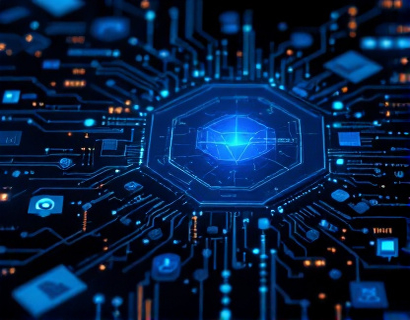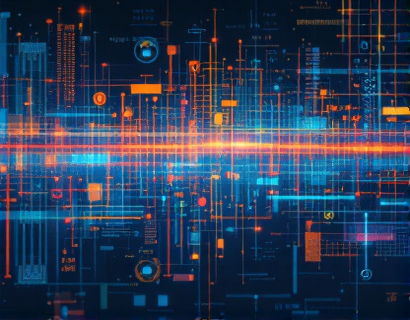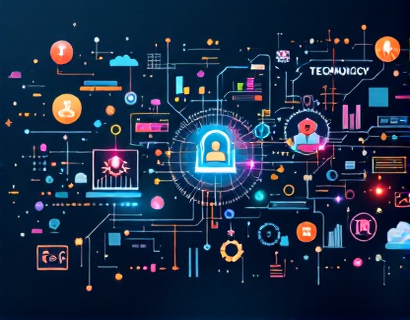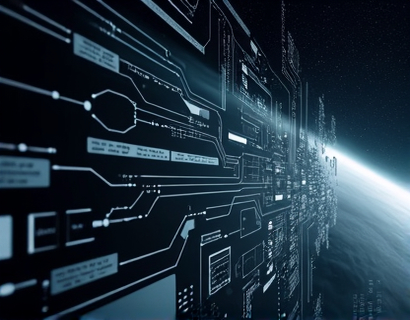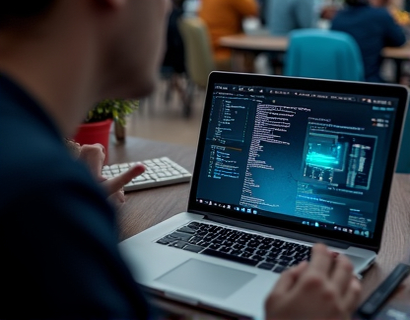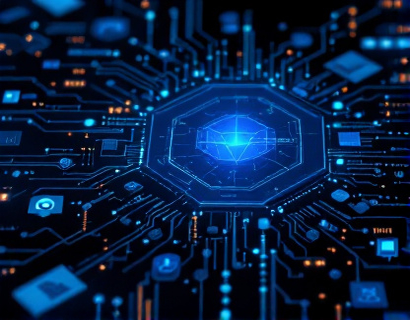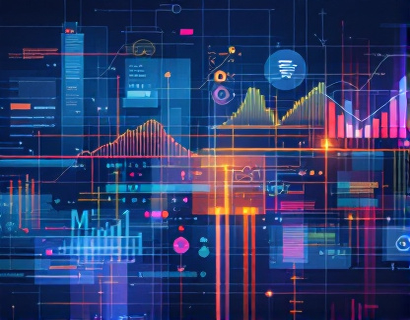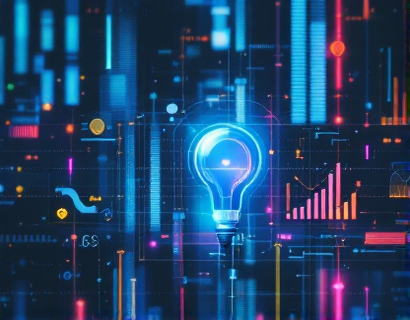Decentralized Productivity: Unleashing the Power of AI and Crypto for Next-Gen Business Efficiency
The intersection of artificial intelligence and cryptocurrency is giving rise to a new paradigm in business efficiency, one that promises to revolutionize how we approach productivity and digital collaboration. This emerging field, often referred to as decentralized productivity, harnesses the strengths of both technologies to create advanced tools that redefine the way organizations operate. For tech innovators and early adopters, understanding this convergence is crucial for staying ahead in a rapidly evolving digital landscape.
Decentralized productivity tools are built on blockchain technology, which ensures transparency, security, and immutability. These characteristics are invaluable in a business environment where trust and data integrity are paramount. By leveraging blockchain, these tools can facilitate seamless collaboration across geographically dispersed teams, eliminate the need for intermediaries, and ensure that all transactions and interactions are recorded in a tamper-proof ledger.
Artificial intelligence, on the other hand, brings intelligence, automation, and predictive capabilities to the table. When combined with blockchain, AI can process vast amounts of data stored on the blockchain, providing insights and automating tasks with unprecedented efficiency. This synergy not only enhances productivity but also opens up new possibilities for innovation and growth.
One of the key benefits of decentralized productivity tools is their ability to foster true decentralization in business operations. Traditional centralized systems often create bottlenecks and single points of failure, which can hinder efficiency and increase risks. Decentralized tools distribute control and data across a network, reducing the likelihood of failures and enhancing resilience. This distributed approach aligns perfectly with the principles of blockchain, ensuring that no single entity has monopolistic control over the system.
For organizations looking to adopt decentralized productivity solutions, the first step is to understand the core components of these systems. At the heart of decentralized productivity lies the blockchain, a distributed ledger that records transactions across multiple computers. Each block in the chain contains a cryptographic hash of the previous block, a timestamp, and transaction data. This structure ensures that once data is recorded, it cannot be altered without consensus from the network, providing a high level of security and trust.
Smart contracts are another critical element of decentralized productivity. These self-executing contracts with the terms of the agreement directly written into code can automate a wide range of business processes. By removing the need for intermediaries, smart contracts reduce costs, increase speed, and minimize the risk of human error. In a decentralized environment, smart contracts can be used to manage everything from supply chain logistics to employee onboarding and performance evaluations.
The integration of AI into decentralized systems further amplifies their capabilities. AI algorithms can analyze data from the blockchain, identify patterns, and make predictions that inform decision-making. For instance, AI can optimize resource allocation by predicting demand and supply trends, or it can enhance security by detecting and responding to potential threats in real-time. This combination of AI and blockchain creates a powerful synergy that drives business efficiency to new heights.
One of the most promising applications of decentralized productivity is in the realm of digital collaboration. Traditional collaboration tools often suffer from issues such as data silos, lack of transparency, and security concerns. Decentralized collaboration platforms, powered by blockchain and AI, offer a solution by providing a secure, transparent, and efficient way for teams to work together. These platforms can store all project data on the blockchain, ensuring that every team member has access to the most up-to-date information and that changes are tracked and verifiable.
AI-driven features can take collaboration to the next level by providing intelligent suggestions, automating routine tasks, and enhancing communication. For example, AI can analyze communication patterns to suggest optimal meeting times based on team members' availability, or it can summarize meeting notes and action items, ensuring that everyone is on the same page. This level of automation not only saves time but also reduces the cognitive load on team members, allowing them to focus on higher-value tasks.
Another significant advantage of decentralized productivity tools is their scalability. As businesses grow, traditional centralized systems often struggle to keep up, leading to performance issues and increased costs. Decentralized systems, however, can scale horizontally by adding more nodes to the network, ensuring that performance remains consistent even as the user base expands. This scalability is particularly important for global organizations that operate across multiple regions and time zones.
Moreover, decentralized productivity tools promote a more equitable and inclusive work environment. By eliminating the need for central authorities, these tools level the playing field, giving all participants equal access to resources and information. This democratization of data and processes can lead to more diverse and innovative solutions, as ideas are not constrained by hierarchical structures.
Implementing decentralized productivity solutions requires a shift in mindset and a willingness to embrace new technologies. Organizations must first assess their current processes and identify areas where decentralization and automation can bring the most value. This involves evaluating data management practices, collaboration workflows, and security protocols to determine how blockchain and AI can enhance these areas.
Once the potential benefits are clear, the next step is to select the right tools and platforms. There is a growing ecosystem of decentralized productivity solutions, each with its own set of features and use cases. Organizations should look for platforms that offer robust blockchain infrastructure, advanced AI capabilities, and a user-friendly interface. Community support and developer resources are also crucial, as they can provide valuable insights and assistance during the implementation process.
Security remains a top priority when adopting decentralized productivity tools. While blockchain technology is inherently secure, it is essential to ensure that the specific implementation is free from vulnerabilities. This involves conducting thorough audits, staying updated on the latest security best practices, and implementing multi-factor authentication and other security measures. AI can play a role here by continuously monitoring the system for anomalies and potential threats, providing an additional layer of security.
To fully leverage the power of decentralized productivity, organizations should also focus on fostering a culture of innovation and continuous learning. Encouraging employees to explore new technologies and providing training on blockchain and AI can help build a skilled workforce capable of maximizing the benefits of these tools. This cultural shift is essential for long-term success and sustainability in a rapidly changing business environment.
In conclusion, the merging of artificial intelligence and cryptocurrency is paving the way for a new era of decentralized productivity. By harnessing the strengths of both technologies, organizations can achieve unprecedented levels of efficiency, security, and collaboration. As tech innovators and early adopters, embracing this transformation is not just an option but a necessity for staying competitive in the digital age. The future of business is decentralized, intelligent, and secure, and those who lead the way will reap the rewards of a more efficient and innovative world.








